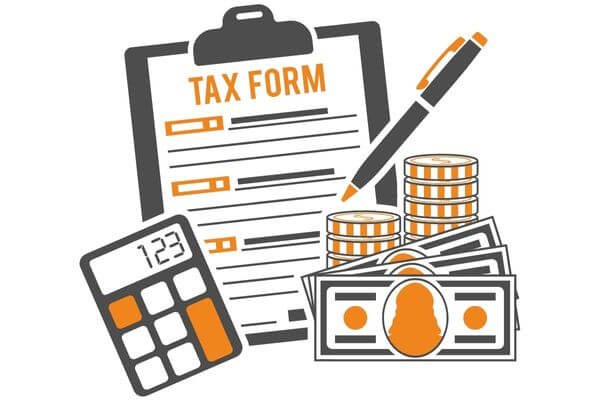Financial Advice for Young Adults: 10 Easy to Follow Money Management Tips
Inside: Are you struggling to manage your money? Feeling overwhelmed with debt? If so, it’s time to take action and build better habits. This guide will teach you how to create a budget and start your savings. You need these financial tips for young adults.
The importance of sound financial advice for young adults cannot be overstated.
Often, a lacuna exists in our educational system where personal finance is concerned, leaving many young adults ill-equipped for the financial decisions that await them in their adult life.
Yet, you will encounter situations that require a sound understanding of budgeting, credit usage, investment, and an array of other financial tools without any formal education in these areas.
Financial advice can act as a compass, guiding you on a path to financial health and stability.
This early orientation can help you avoid the pitfalls of needless debt accumulation, poor money management, and inefficient financial choices like I made.
That is why it is of utmost importance to start imparting knowledge and financial habits to young adults as early as possible.

Why Financial Advice is Crucial for Young Adults
Money matters! Especially when you’re young and there’s a world of financial responsibilities unveiled before you.
Understanding financial basics early on is key to smart monetary decisions in the future. Here’s why you should consider this vital:
- Knowledge Burst: Understanding finance terms, the implications, and their impacts arm you with knowledge for future decisions.
- Saving for Later: Early investment in savings accounts or retirement funds can maximize your funds later in life.
- Debts Control: Ensuring debts are paid off faster helps avoid excessive interest in the long run.
- Investment: Stock or mutual fund investment can multiply your savings in the right condition.
Remember, your financial health requires deliberate action, start early!
This post may contain affiliate links, which helps us to continue providing relevant content and we receive a small commission at no cost to you. As an Amazon Associate, I earn from qualifying purchases. Please read the full disclosure here.
Shen delves into the importance of saving money, investing wisely, and foregoing a luxurious lifestyle to attain financial freedom.
This book is essential for individuals interested in shifting their mindset towards wealth and its accumulation by prioritizing financial independence over material affluence.
What is the best saving advice for young adults?

The best saving advice for young adults is to start early and save regularly.
This will help you build up a nest egg that you can use in the future.
Personally, this is my own regret as such it took me way too long to become financially sound.
Also, you want to be mindful of your spending and live within your means. You don’t want to live life broke.
Best Financial Advice for Young Adults

When you’re in your 20s, the world feels like your oyster, ripe with opportunities and potential.
But among this plethora of choices, the most important decisions you make may very well relate to your finances.
While the excitement of earning and spending your hard-earned money can be exhilarating, it is crucial to remember that wise financial decisions made early on can set the stage for long-term financial success.
We have curated some of the best financial advice to help you make informed decisions and set the foundation for a secure financial future.
1. Create a Budget
Creating a budget for a low income can seem like a daunting task. However, once correctly accomplished, it can undeniably make your life a lot easier.
Below are some reasons to start budgeting from the start:
- Money management: Knowing the ins and outs of your financial transactions helps manage your money efficiently. A budget gives you a clear snapshot of your income and expenses, allowing you to make strategic decisions about spending and saving. This level of control can be incredibly liberating and reassuring.
- Financial discipline: Creating a budget encourages discipline when it comes to financial decisions. It can show you areas where you’re spending more than necessary, such as an underutilized gym membership, frequent dining out, or an unused streaming subscription. By addressing these expenses, you could easily save an additional $100 per month.
- Alignment with goals: A budget can provide clarity and align your financial actions with your long-term goals. If you are side-tracked and lose sight of these ambitions, the budget serves as a potent reminder to guide you back to the right path.
- Effective savings: A budget constitutes a robust tool that allows you to maximize your income and inculcate a savings habit. Essentially, it’s a roadmap that shows you, in real time, where you can minimize and direct those funds into savings. Those savings can then be invested toward achieving significant life goals more efficiently.
- Stress reduction: Tracking income and expenditure can culminate in a stress-free financial life. For example, it helps manage unexpected emergencies or allows you to enjoy after-office drinks without any worries about overspending.
To simplify the job, various user-friendly budgeting apps are available.
These digital budgeting tools or apps offer handy features that can streamline tracking expenses and income. These tools can automatically categorize transactions, display visual charts of spending, and send alerts when you’re nearing the limit of a budget category.
Enjoy guilt-free spending and effortless saving with a friendly, flexible method for managing your finances.
So, no more wondering where your money went.
With a budget in place, you get to tell your money exactly where to go, and this is an empowering shift from feeling out of control to feeling in control of your finances.
By making budgeting a consistent part of your financial routine, you adopt a proactive approach to your money, making your life easier, and your future brighter.
2. Manage Your Debt

As a young adult, managing your debt is incredibly crucial. Not only does it set the foundation for your financial future, but it also helps to keep your credit score healthy.
Here are some top-notch expert tips on how to effectively manage your debts:
- Avoid credit cards whenever possible. Although credit card rewards may seem appealing, they can often lead to unwanted debts. Instead, try using cash, debit cards, or cash app cards.
- Don’t finance purchases that depreciate in value over time. Rather than taking a loan for things like cars or other depreciable assets, save up and pay in full.
- Minimize education-related costs. This can be achieved by going to in-state schools, considering trade school or community college, living off-campus, and exploring scholarships or work/study programs. Learn how to pay for college without loans.
- Pay off your debts methodically. Consider strategies like the debt snowball or avalanche methods to strategically pay off your debts. Use a debt payoff app to find your debt free date.
Remember, being in debt can delay your financial goals.
So, learning to manage your debts early on in your life can have a significant impact on your future finances.
3. Invest Wisely
Investing wisely is a cornerstone of solid financial advice for young adults. It sets the foundation for a financially secure future.
Most people are terrified of the concept of investing and stay away from it, which is the worst decision possible.
Investing is about putting your money to work for you, expecting growth or income over time.
Consistently adding money to your investment portfolio can be more beneficial than staying away or trying to time the market.
Investing is ideally a long-term endeavor. Patience is key – you can’t expect to make big gains or reach your financial goals overnight. It’s a process of steady growth.
Simplicity is key for beginner investors. Buying and holding index funds is a good example of a simple and passive investment strategy. Or you can learn how to invest in stocks for beginners.
4. Educate Yourself about Savings and Investment Accounts

Understanding savings is a fundamental aspect of personal finance, yet many young adults ignore this.
Beginning an emergency fund, no matter how small is one of the oft-repeated mantras of personal finance experts.
Consistently making savings a non-negotiable monthly “expense” not only provides a safety net for emergencies but also contributes to various future goals such as retirement, vacation, or a down payment on a home.
A foundational aspect of mastering your finances involves learning self-control, reducing the tendency to make every purchase on credit, and understanding the importance of saving money before making a purchase.
Taking the initiative to read personal finance books and gain knowledge about managing money can greatly aid in controlling your financial future and making informed decisions about savings.
Starting saving for retirement early is essential to secure financial stability in the future.
Learn how much money should I have saved by 25.
5. Limit Your Expenses
Understanding how to limit expenses can be a game changer for your finances.
Track your daily expenses carefully, even the small ones like your morning coffee, as they can add up and provide crucial insights into your spending habits.
Keep your monthly costs, such as rent, as low as feasibly possible, as this will save you substantial amounts over time and accelerate your ability to invest in assets like a home. Learn the ideal household budget percentages.
This one makes the biggest difference to spend less money…Categorize your expenses and set specific spending limits for each group, reviewing and adjusting these as needed to curb any overspending.
Regularly review your finances, specifically your bank and credit card statements, every two to three months to identify and eliminate any unnecessary expenditures.
6. Build Passive Income Streams

Okay, this one is my top financial tip!
Navigating the financial world requires strategy, and for young adults, generating passion income streams is a game-changer. With the decline of traditional 9-5 jobs, it’s crucial to adopt flexible financial strategies.
- Start identifying your passions that can be monetized. Think about your hobbies, skills, or areas in which you’re an expert. It could be anything from blogging to tutoring or even food delivery services.
- Find ways to make passive income. Remember, every bit of extra income counts, and data suggests diversifying income streams can secure your financial future.
- Continuous learning is your power tool here. Aim to broaden your financial literacy, understand investing, explore various earning methods, and strengthen your entrepreneurial spirit.
While cutting expenses helps, growing your income using your passions gives you control over your financial destiny.
So, don’t hesitate in doubling up your day job with your passion-driven side hustles.
Expert tip: One of the best ways to make money online for beginners is a key place to start.
7. Create a Cash Reserve
Understand that surprise expenses can unsettle your financial plan, like a sudden car repair costing $700. Having a cash reserve will keep you financially stable through these unexpected turns.
- Start an emergency fund: Alongside your regular savings, begin an emergency fund. Aim to save around three to six months’ worth of income.
- Prioritize savings: Consider your savings as a non-negotiable expense. You’ll soon realize you’ve saved enough for significant objectives like a down payment on a home.
- Build a rainy day fund: This larger $10k-50k rainy day account will help in those long-term expenses or job loss.
- Combat inflation: Choose a money market account to preserve the value of your savings, while ensuring quick accessibility in emergencies.
- Automation is key: If you’re forgetful, set up an automatic transfer that channels funds to your savings account immediately upon salary credit.
Building up cash reverses will help you to improve your liquid net worth and have less stress around money.
8. Learn About Taxes

Taxes seem complicated, huh? Well, not grasping tax basics can give you a run for your cash. So, get started young and you might save up a fortune in the long run
Start by understanding your salary. The chunk that you take home (net pay) isn’t the whole amount (gross pay) that your employer agreed on. Learn more about gross pay vs net pay.
If you’re self-employed, remember, you’ve got to handle income taxes, and also the full FICA bundle.
Do your bit of math now and avoid an unexpected cringer next April.
9. Consider a Term Life Insurance Policy
Getting a term life insurance policy while still relatively young is a smart financial move that any savvy young adult should consider early in their career.
This safety net serves multiple purposes, especially in ensuring the protection of your future family if for any reason you’re unable to provide for them.
Term life insurance policies are typically far more affordable for young adults. The research notably reveals that the younger an individual is, the more affordable the life insurance policy tends to be. Therefore, beginning this investment in your early years enables you to lock in a lower premium rate, thereby saving significant amounts in the long run.
A life insurance policy is an important piece of your financial planning puzzle. Remember, cost increases with age so act fast!
10. Take Action and Stay With It

Taking action and sticking with it is crucial in managing finances well.
First, you’ve got to get clear about your financial goals. Want to set up a passive income stream or travel? Make them specific, feasible, and measurable.
Once you’ve set your goals, break them down into bite-size pieces. For instance, calculate the costs and set quarterly goals. Make sure to these vision board supplies to keep your goals front and center.
Ultimately, this proactive approach coupled with persistence can help you efficiently manage your funds and stay financially healthy.
Simply select one of the high-yield savings products offered by their network of federally insured banks and credit unions to begin your savings journey.
You can open a free Raisin account in just a few minutes!
FAQ
Use These Personal Financial Tips for Young Adults

In conclusion, managing personal finances is a vital skill that unfortunately is not emphasized enough in our educational institutions.
It’s critical for young adults – you – to learn this skill to establish a strong financial foundation for their future. Especially if you are determined to become financially independent.
- This begins by developing a sense of self-control and understanding the importance of delayed gratification.
- Regularly monitoring your income and expenses, and adjusting your lifestyle to live within your means, is a crucial habit.
- Additionally, the importance of starting an emergency fund and saving for retirement cannot be overstated.
By incorporating these financial tips into their lives, young adults can steer clear of unnecessary financial stress and ensure a secure and financially healthy future.
Also, when you see these 6 signs he’s completely fallen for you, make sure to talk about finances so you aren’t blindsided and can get on the same money journey.
Take this Advice about Money

It is crucial to understand not just the mechanics of money, but also, the long-term implications of your financial decisions.
Take control of your financial future today, and you are sure to reap the rewards in the years to come.
Discerning financial advice from trusted sources, instead of relying on potentially misleading external influences, is also key. Remember, the sooner you start, the better off you’ll be in the long run.
Maybe one of these life changing books will convince you.
Remember the data-driven fact: small changes in your everyday expenses can have as big of an impact on your finances as getting a raise.
Learn how to save money fast on a low income!
Did the post resonate with you?
More importantly, did I answer the questions you have about this topic? Let me know in the comments if I can help in some other way!
Your comments are not just welcomed; they’re an integral part of our community. Let’s continue the conversation and explore how these ideas align with your journey towards Money Bliss.







Thank you for providing such well-written content on your website, kudos.